gaming
GameStop Kills 33-Year-Old Gaming Magazine as Stock Price Sinks
Published
5 months agoon
By
admin

GameStop’s stock has weathered a rough week, and things only got worse on Friday as the broader stock market felt the pain from a series of rough economic reports that suggested the United States might be headed for recession. And it came on the same day as the video game retailer killed off an iconic industry brand.
On Friday, the long-running video game industry magazine Game Informer announced that it had immediately shuttered after 33 years, with both the print and web versions of the publication closing. The entire staff of writers, editors, and other employees were laid off as a result.
“From the early days of pixelated adventures to today’s immersive virtual realms, we’ve been honored to share this incredible journey with you, our loyal readers,” reads a statement posted to the magazine’s Twitter (aka X) account. “While our presses may stop, the passion for gaming that we’ve cultivated together will continue to live on.”
Owned entirely by GameStop, Game Informer had outlasted most of its print competitors in part due to its unique relationship with the video game retailer, which offered the magazine to customers as part of a membership plan that included store discounts and other perks.
But while some rival video game publications have axed their print editions but continued to produce online coverage in one way or another, Game Informer is closing up shop entirely. Its website now displays only a placeholder, with its library of coverage now inaccessible to readers.
Decrypt reached out to GameStop for comment on the closure, but did not immediately receive a response.
The move is the latest attempt by the storied retailer to evolve with the ever-changing video game industry, which has gradually been shifting from a model of physical media into a world with more purely digital software—and a slew of devices that can capably play games, even if they’re not dedicated gaming consoles or handhelds.
GameStop has broadly struggled with that transition, weathering six straight years of total operating income losses as the firm attempts to expand its business with its entry into smartphone trade-ins and its now-shuttered NFT business.
The one bright spot in recent years has been stock price gains propelled by investor enthusiasm around the “meme stock” saga, most notably in 2021. The stock jumped again in May and June as online personality Keith Gill (aka Roaring Kitty) returned after a three-year hiatus, but GME has struggled to maintain those gains in recent weeks.
GameStop’s stock price is now down 13% over the last week to a closing price Monday of just over $21.00. That plunge includes a 3% daily dip on Friday alongside broader market bleeding, which was apparently spurred by a rough U.S. jobs report that some analysts say points to a coming recession.
The retailer’s stock price was on its way up in mid-July, briefly rising above $28 per share—but has since shed those recent gains, falling to a low not seen since late May.
Edited by Ryan Ozawa.
GG Newsletter
Get the latest web3 gaming news, hear directly from gaming studios and influencers covering the space, and receive power-ups from our partners.
Source link
You may like
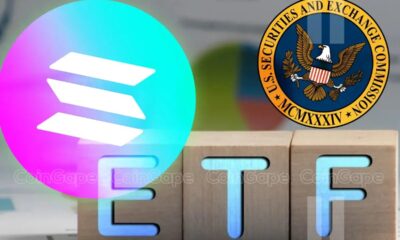

5 Tokens Ready For A 20X After Solana ETF Approval


Solana beats Ethereum in a key metric 3 months in a row
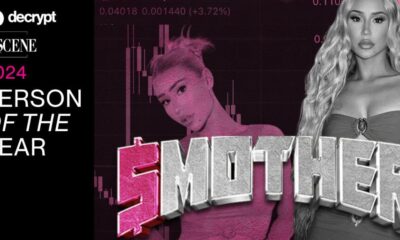

SCENE’s 2024 Person of the Year: Iggy Azalea
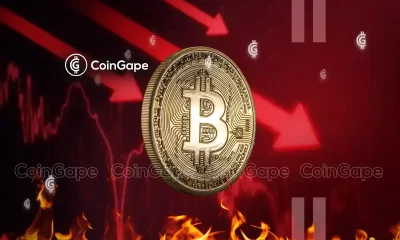

BTC Risks Falling To $20K If This Happens


Most Layer 2 solutions are still struggling with scalability


Here’s why Stellar Price Could Go Parabolic Soon
gaming
‘MemeBattle’ Pixelverse Card Game on Base Features Brett and Other Meme Mascots
Published
4 days agoon
December 19, 2024By
admin
Crypto gaming franchise Pixelverse is launching a new tactical deck builder game that transforms popular cryptocurrency memes into playable characters, the firm announced Thursday.
MemeBattle will feature characters based on the mascots of Base network meme coins, including Brett, Toshi, Keyboard Cat, Dog in Me, Mr. Miggles, Mochi, Ski Mask Dog, and Mochi.
Players will be able to build squads using the meme coin-based characters and compete in battles to earn rewards. Characters from other crypto projects including Pudgy Penguins, Turbo, and Mew will also be featured.
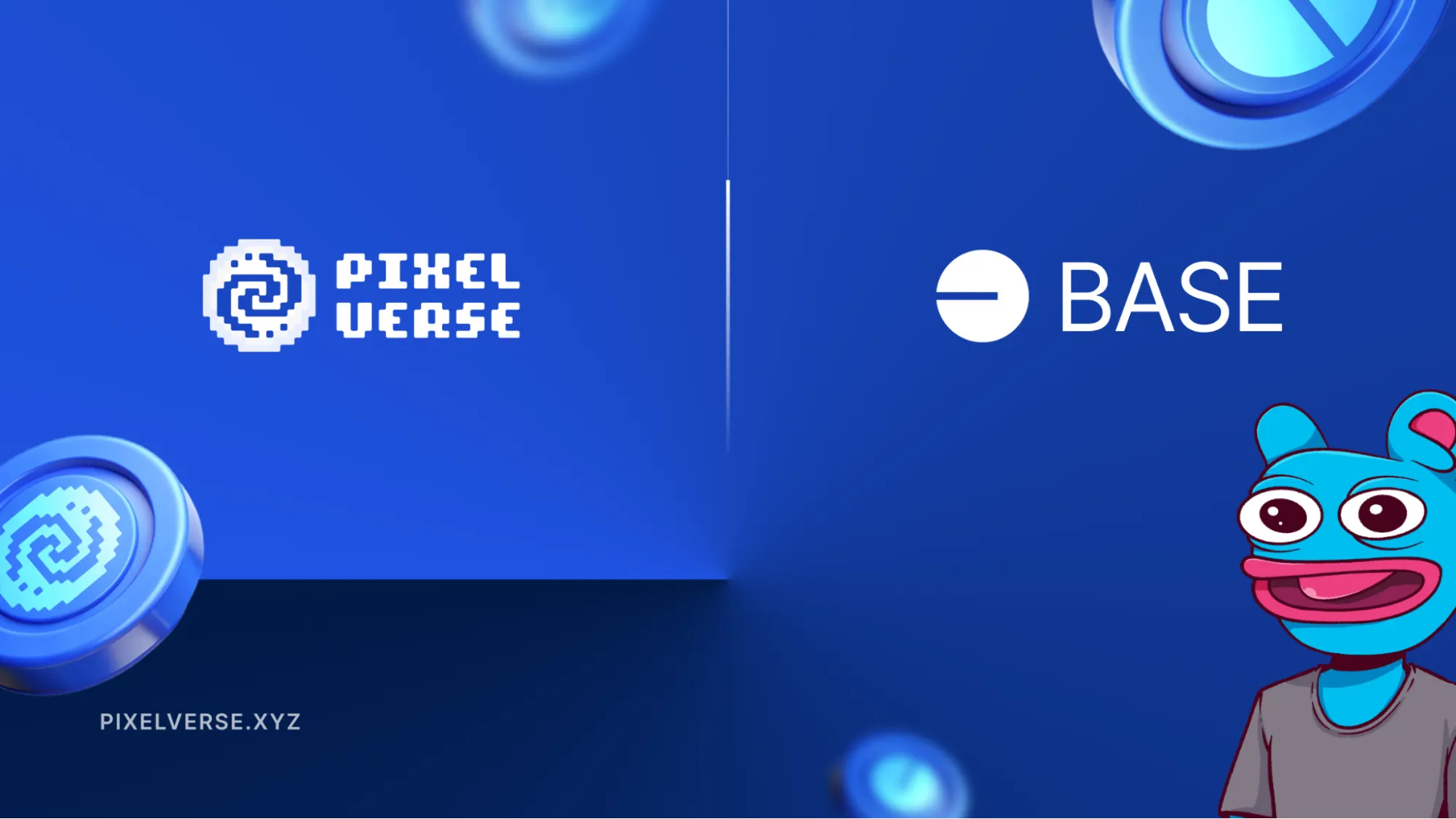
A Pixelverse representative told Decrypt that the game will launch in January with 10 playable meme coin characters in the initial release.
Base is a prominent Ethereum layer-2 scaling network launched by Coinbase, the popular crypto exchange. The upcoming game builds on Pixelverse’s previous success with PixelTap, a Telegram mini-game that attracted millions of players earlier this year ahead of the project’s PIXFI token launch. Pixelverse also has its own, titular flagship metaverse game.
“Base offers a trusted, scalable platform with low fees and seamless wallet integration, making it the ideal choice for founders in Web3 gaming,” said Pixelverse co-founder Kori Leon, in a statement. “We were excited to work with Brett and other leading meme coins as we’re embracing their rise as digital cultural icons.”
Pixelverse has secured funding from crypto exchange Gate.io’s $50 million Meme Fund, which aims to support meme creators and community-focused projects. Pixelverse has also received backing from venture capital firms including Delphi Ventures and Mechanism Capital.
GG Newsletter
Get the latest web3 gaming news, hear directly from gaming studios and influencers covering the space, and receive power-ups from our partners.
Source link
gaming
Telegram Game ‘TapSwap’ Sets Token Launch and Airdrop for January
Published
1 week agoon
December 13, 2024By
admin

Popular Telegram tap-to-earn game TapSwap revealed it will launch its TAPS token on The Open Network (TON) alongside an airdrop of rewards for players in the second half of January 2025.
TAPS will become a critical resource in the TapSwap ecosystem, the developers said, granting holders access to tournaments, staking rewards, and governance participation.
Whether or not a player receives the TAPS airdrop will be determined by the player’s overall engagement within TapSwap—in other words, how often a player interacted within TapSwap or played the game. Users will need to connect their wallet to receive the airdrop.
What started as a tap-to-earn game on Telegram, in which users repeatedly tap a button on the screen to earn in-game coins, has since evolved. In August, the game added a city builder mode called “Tappy Town,” and achievements accrued through that experience will also affect the likelihood of receiving a TAPS airdrop.
Alongside the airdrop, the game’s evolution is expected to continue. TapSwap is transitioning into a skill-based platform, offering competitive tournaments to players and “leaving traditional pay-to-win models behind,” a representative for the game told Decrypt.
The platform has amassed more than 50 million users globally since its launch in February.
Telegram gaming and participation on The Open Network has blossomed this year, led by popular mini apps and games like Hamster Kombat and Notcoin. Notcoin famously dropped more than 35 million players over 80 billion tokens earlier this year, gaining listings from Binance and OKX in the process.
The Open Network is a layer-1 network created by Nikolai and Pavel Durov, the co-founders of messaging app Telegram. While development began internally, the company dropped the project in 2020 under regulatory scrutiny, leading a community of external developers to continue building the ecosystem.
Its native token, Toncoin (TON), has risen nearly 200% in the last year, pushing it to more than a $16 billion market cap. That’s made it the 16th-largest crypto asset by market capitalization, according to CoinGecko.
Edited by Andrew Hayward
GG Newsletter
Get the latest web3 gaming news, hear directly from gaming studios and influencers covering the space, and receive power-ups from our partners.
Source link
gaming
Battle Royale Shooter ‘Off the Grid’ Gets Biggest Update Yet—Here’s What’s New
Published
2 weeks agoon
December 11, 2024By
admin
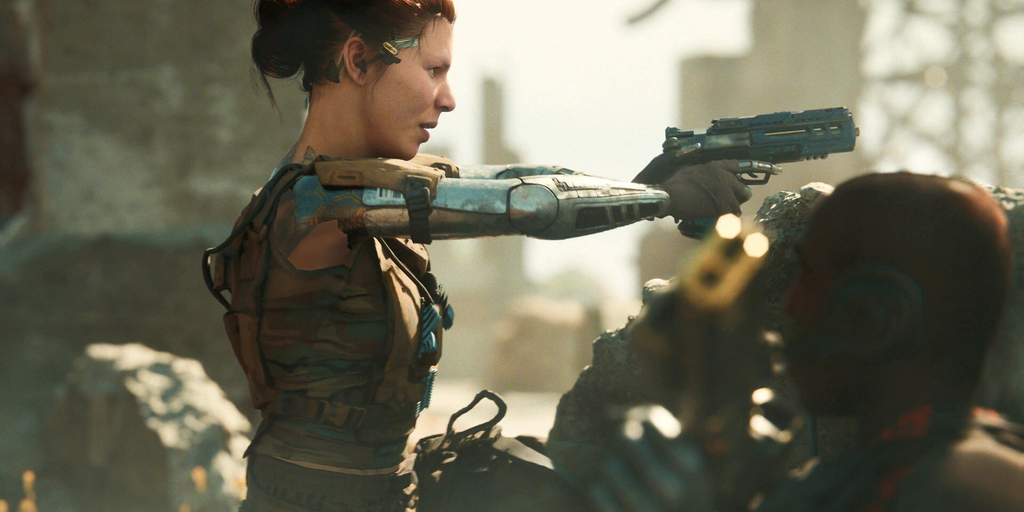
Avalanche-based battle royale shooter Off the Grid has launched its most significant update since entering early access in October. Patch notes reviewed by Decrypt note that the game has reworked how scoped weapons work, added what developer Gunzilla Games framed as a notable performance boost, and made a number of weapon balance changes.
After entering early access in October, Off the Grid attracted mainstream attention with tons of clips that showcased the game’s unique mechanics going viral. This helped contribute to the title topping the Epic Games free-to-play PC game list, even surpassing Epic’s own mega-hit Fortnite in the process.
At its core, Off the Grid is a third-person shooter. However, scoped weapons—such as the sniper rifles—require some first-person elements. In previous builds, this has largely been ignored by the player base, as it felt jarring to go from third to first person. Even then, it didn’t feel like much of an advantage.
Today marks the BIGGEST update for OTG since its Early Access launch. We’ve overhauled nearly every system in the game! 🚀
First up, check out the all-new FPV Aiming System 👁️ – just one of many incredible improvements.
Stay tuned for more highlights from this massive update! pic.twitter.com/hhvmPU1Xn5
— Off The Grid (@playoffthegrid) December 11, 2024
This system has been significantly reworked in what the team is calling Proper First-Person Perspective in Aim Down Sights mode—also known as TrueFPV. From gameplay seen by Decrypt, it does appear to be a marked improvement, giving scoped weapons a much better feel for players than in previous builds.
With this major rework, there are now new reticles, tweaks to field of vision, and accuracy changes. Namely, aim assist has been improved for controller players—although some users in the game’s official Discord server believe this is too overpowered in its current form.
An underrated but noticeable change comes with improvements to weapon sway and camera shake when using the weapon. This gives fighting a much more intense feel.
A prominent criticism of the game up until this point has been its poor performance, particularly on PC. In this update, the game promises a 10% to 20% frames-per-second (FPS) boost. On consoles, this comes in the form of fidelity and performance modes, with the former seeing a 10% frame boost and the latter marking as much as a 40% improvement.
Player backpacks have also received changes, mostly regarding visual effects to better communicate their purpose; for example, the limb accelerator backpack shows when a cyberlimb is being charged. That said, the Gridshield Backpack has been nerfed to only reduce 50% of zone damage, compared to its previous full protection.
Lastly, the patch notes have four pages worth of weapon and cyberlimb changes that are sure to mix up the meta. On top of this, in-game movement has received a number of changes, which has led to Discord users complaining that the game feels slower than before.
These changes, the document says, are in preparation for an upcoming ranked mode.
Edited by Andrew Hayward
GG Newsletter
Get the latest web3 gaming news, hear directly from gaming studios and influencers covering the space, and receive power-ups from our partners.
Source link

5 Tokens Ready For A 20X After Solana ETF Approval

Solana beats Ethereum in a key metric 3 months in a row

SCENE’s 2024 Person of the Year: Iggy Azalea

BTC Risks Falling To $20K If This Happens

Most Layer 2 solutions are still struggling with scalability

Here’s why Stellar Price Could Go Parabolic Soon

Perp-Focused HyperLiquid Experiences Record $60M in USDC Net Outflows

Experts say these 3 altcoins will rally 3,000% soon, and XRP isn’t one of them

Robert Kiyosaki Hints At Economic Depression Ahead, What It Means For BTC?

BNB Steadies Above Support: Will Bullish Momentum Return?

Metaplanet makes largest Bitcoin bet, acquires nearly 620 BTC

Tron’s Justin Sun Offloads 50% ETH Holdings, Ethereum Price Crash Imminent?

Investors bet on this $0.0013 token destined to leave Cardano and Shiba Inu behind

End of Altcoin Season? Glassnode Co-Founders Warn Alts in Danger of Lagging Behind After Last Week’s Correction

Can Pi Network Price Triple Before 2024 Ends?
182267361726451435

Why Did Trump Change His Mind on Bitcoin?

Top Crypto News Headlines of The Week

New U.S. president must bring clarity to crypto regulation, analyst says

Will XRP Price Defend $0.5 Support If SEC Decides to Appeal?

Bitcoin Open-Source Development Takes The Stage In Nashville

Ethereum, Solana touch key levels as Bitcoin spikes

Bitcoin 20% Surge In 3 Weeks Teases Record-Breaking Potential

Ethereum Crash A Buying Opportunity? This Whale Thinks So

Shiba Inu Price Slips 4% as 3500% Burn Rate Surge Fails to Halt Correction

Washington financial watchdog warns of scam involving fake crypto ‘professors’

‘Hamster Kombat’ Airdrop Delayed as Pre-Market Trading for Telegram Game Expands

Citigroup Executive Steps Down To Explore Crypto
Mostbet Güvenilir Mi – Casino Bonus 2024

NoOnes Bitcoin Philosophy: Everyone Eats
Trending

 3 months ago
3 months ago182267361726451435

 Donald Trump5 months ago
Donald Trump5 months agoWhy Did Trump Change His Mind on Bitcoin?

 24/7 Cryptocurrency News4 months ago
24/7 Cryptocurrency News4 months agoTop Crypto News Headlines of The Week

 News4 months ago
News4 months agoNew U.S. president must bring clarity to crypto regulation, analyst says

 Price analysis4 months ago
Price analysis4 months agoWill XRP Price Defend $0.5 Support If SEC Decides to Appeal?

 Opinion5 months ago
Opinion5 months agoBitcoin Open-Source Development Takes The Stage In Nashville

 Bitcoin5 months ago
Bitcoin5 months agoEthereum, Solana touch key levels as Bitcoin spikes

 Bitcoin5 months ago
Bitcoin5 months agoBitcoin 20% Surge In 3 Weeks Teases Record-Breaking Potential


